The Sunset Ceremony was not a typical commemorative ceremony. No floral tributes or addresses, but a beautiful evocation.
Before the actually ceremony, there was a private commemoration.
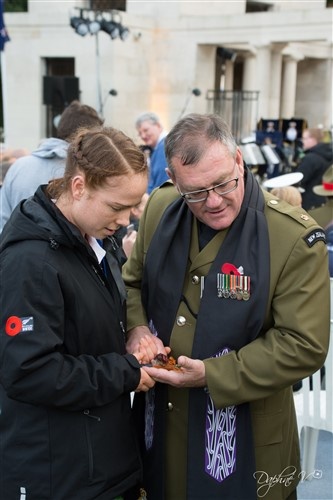
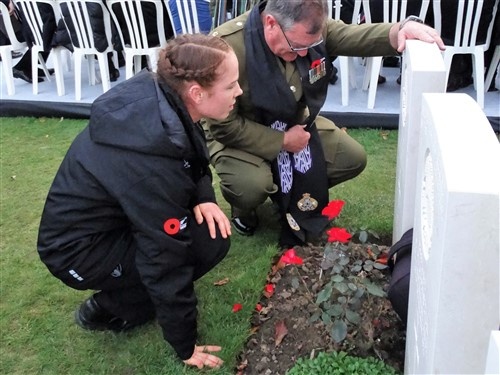
Arrival of the Official Party - Kaiarahi
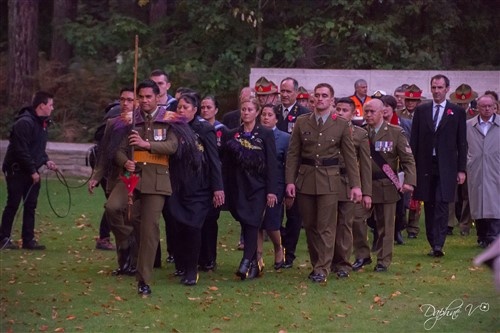
'The National Anthems' performed by Leading Aircraftsman Barbara Graham, Sergeant David Fiu and Able Musician Rebecca Nelson
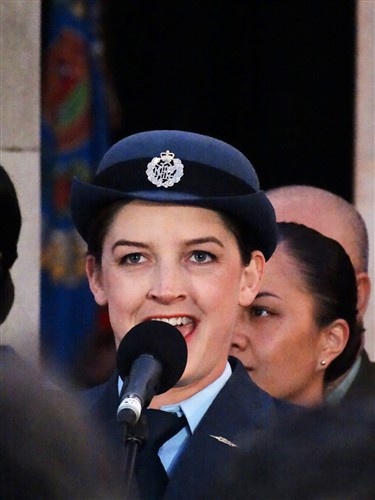
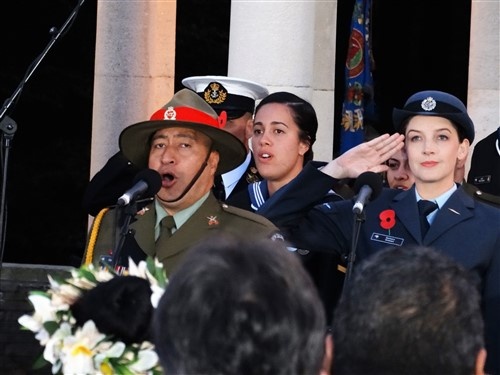
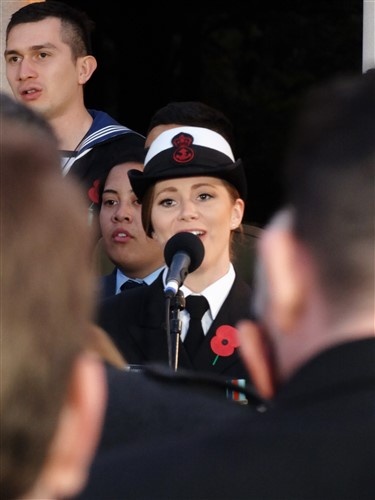
The Regimental Colour of 4th Otago Southland Battalion carried by 2/4 Battalion Royal New Zealand Infantry Regiment and The Regimental Colour of 6the Hauraki Battalion carried by 3/6 Battalion Royal New Zealand Infantry Regiment marched on 'Tarakihi' - a musical work symbolising the exodus of New Zealanders in the Pacific, Gallipoli, The Western Front and Sinai-Palestine - to acknowledge that the battle honours that they carry were earned in the defence of this land. This Tarakihi was performed by the band, the Maori Cultural Group and the vocalists from the New Zealand Defence Force.
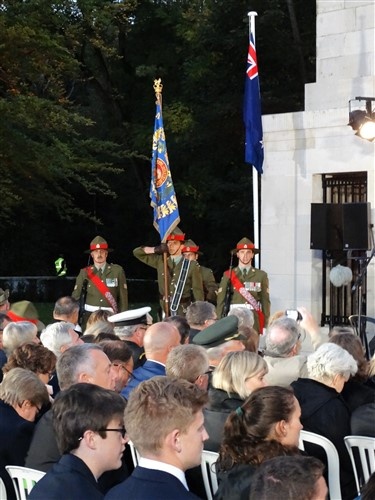
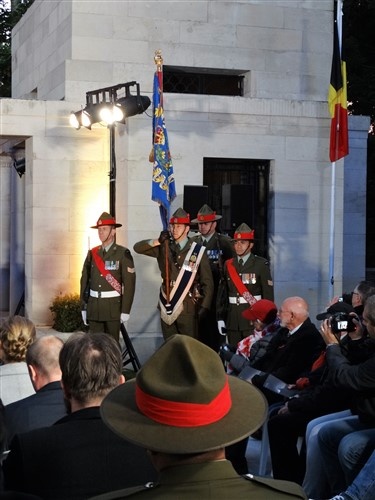
A century after the First World War it's difficult to comprehend the horror of trench warfare. A few short months after war began, movement ground to a halt. Both sides settled into the Western Front - a system of trenches remained in place for almost the entire war. Over 40,000km of interlinking and opposing trenches ran from the Belgian coast to the Swiss border. Cold, wet and surrounded by death from battle or disease these trenches were an appalling place to live and die. Trench warfare created a stalemate which turned the conflict into an horrific war of attrition.
There were, however, occasional reprieves from the horror. The Christmas truces of 1914 and 1915 saw a series of unofficial ceasefires occur along the front; soldiers mingled, exchanged food and souvenirs. In New Zealand their families gathered together to celebrate Christmas as best they could, but always knowing their loved ones were in harm's way.
'Silent Night' performed by Sergeant David Fiu, Leading Aircraftsman Barbara Graham and Able Musician Rebecca Nelson
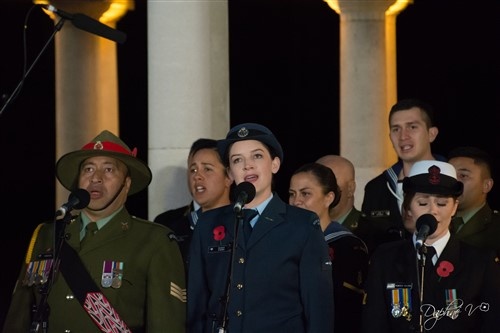
These were torturous times for families back in New Zealand. News took months to travel around the globe to home. Families seldom knew how their loved ones were faring. They consoled themselves praying for a safe return.
'Bring Him Home' performed by Sergeant David Fiu and the New Zealand Defence Force Band
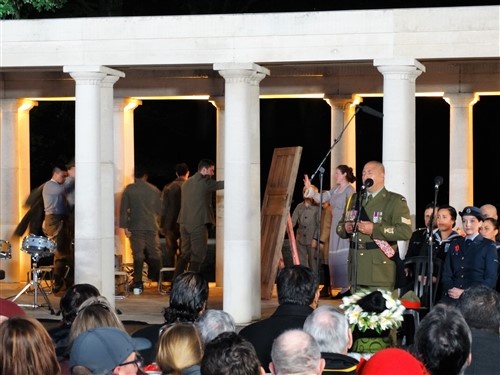
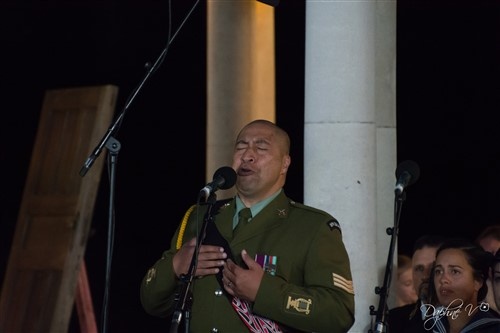
Sergeant Major Dwayne Bloomfield's composition 'Passchendaele' was next. A musical depiction of the events that unfolded that day; the six movements are titled Barrage, Reflection, Slaughter, Aftermath, Grief and Requiem.
-The music opened in the trenches. Young soldiers in the half-light of early morning waited while all around them the artillery barrage. (music element)
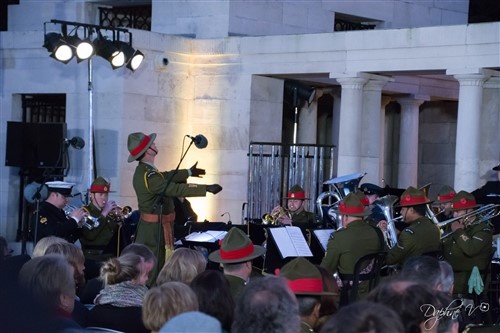
-After the barrage there was a brief moment of stillness; soldiers had time for a final reflection on home, before facing the uncut barbed wire of No-Mans-Land 27 meters in front of them. (music element)
-At the sound of the attack whistles the New Zealand troops surged from the trenches into waist deep mud; caught on the barbed wire they were cut to shreds by the German machine gun fire. (music element)
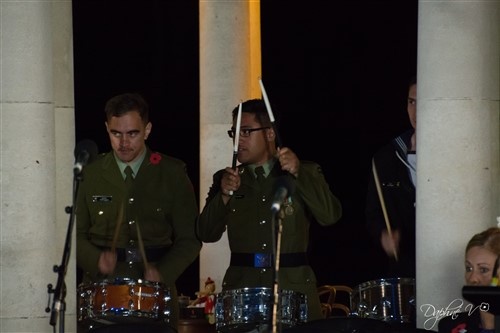
-In three short hours New Zealand sustained 2,735 casualties. More than 900 either dead, or mortally wounded on the barbed wire, dying a slow, painful and lonely death. (music element)
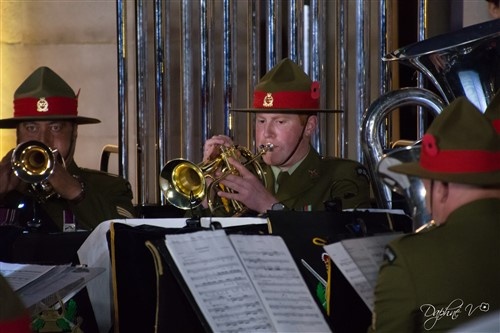
-The survivors, shocked by the atrocity, grieve for their comrades, while the final letters of the dead, written as they had waited for battle in the trenches, took their sombre journey home to New Zealand. (a karanga - moteatea - lament by the Maori Cultural Group)
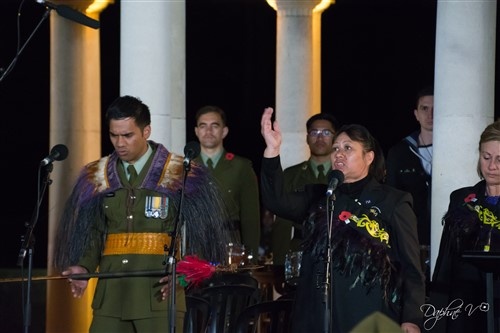
- 'A solemn Requiem to the dead honours their bravery and comradeship'. The work concluded with the sound every New Zealand household dreaded during the First World War; the telegraph delivery boy (played by Shard Hubbard) knocking on the front door, bringing news of death - a sound heard nearly two thousand times throughout New Zealand after the October 1917 Passchendaele battles. On this day, one hundred years ago, a solemn bond was forged in blood between New Zealand and Belgium - never to be forgotten.
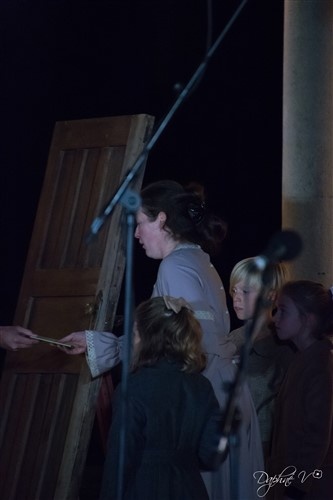
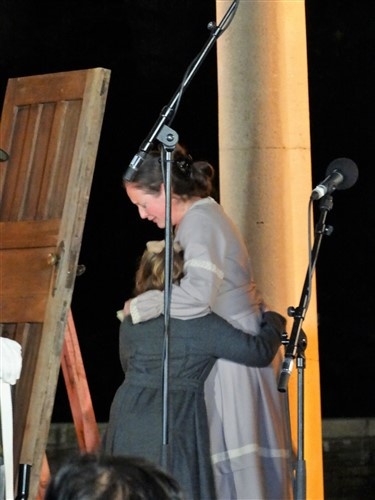
Meanwhile the Catafalque Guard had mounted.
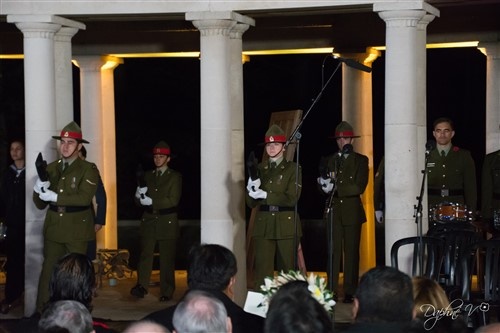
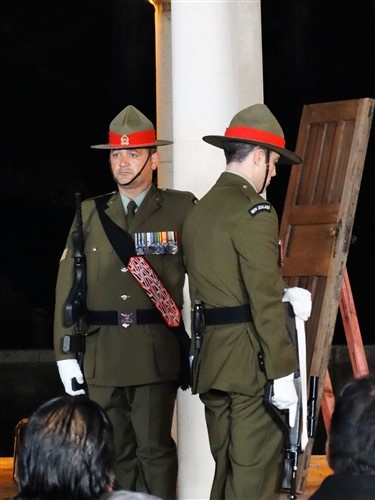
Prayer for Peace by Chaplain Class 3 Hamish Kirk
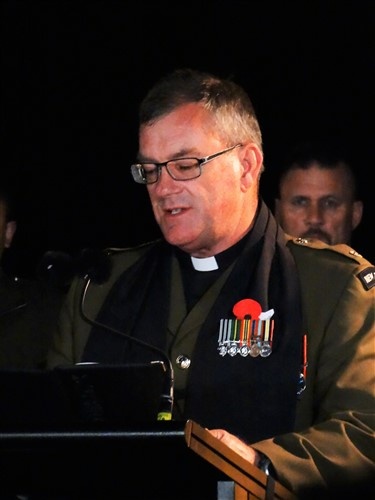
Soldiers in First World War uniforms recited The Ode. In Maori by Private Malik Priestley and in English by Lieutenant Karl Roberts.
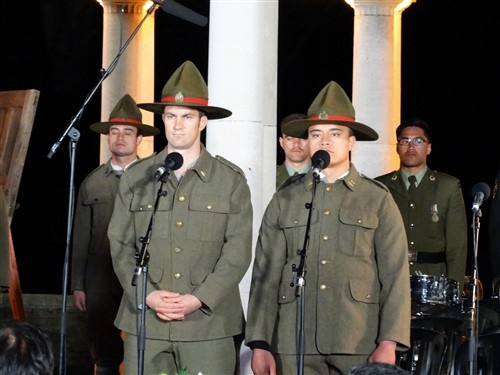
Nightfall in Camp with the Last Post, followed by One Minute of Silence and a poem read by Nancy Bale.
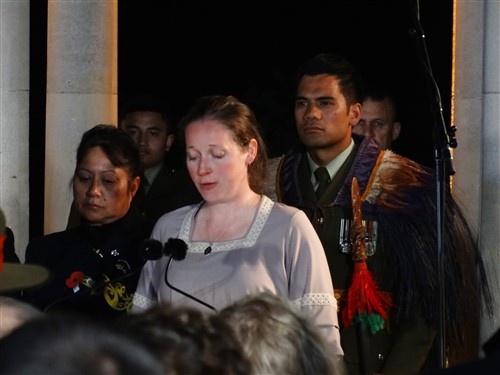
Meanwhile The Colour Parties marched off to 'Fernleaf Headstones'. The Catafalque Guard dismounted.
The Sunset Ceremony concluded with an iconic Maori love song, composed in 1914 and sung by the 19th and 20the Maori Reinforcements, serving as combat engineers here in 1917: Pokarekare Ana.
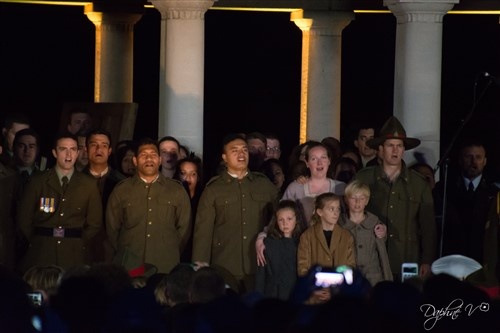
Page made by IDG and Daphné Vangheluwe.